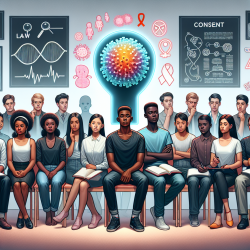Introduction
The COVID-19 pandemic has highlighted existing disparities in healthcare and mental health support, particularly among African American communities. A recent study titled Coping with Racism: a Perspective of COVID-19 Church Closures on the Mental Health of African Americans offers valuable insights into the role of Black Churches in supporting mental health. This blog explores how practitioners can leverage these findings to improve their practice and support African American communities more effectively.
The Role of Black Churches in Mental Health
Historically, Black Churches have been pivotal in providing a sense of community, support, and resilience for African Americans. They have served as sanctuaries where individuals can find solace and strength amidst societal racism and discrimination. The research emphasizes the therapeutic and cathartic role of traditional Black worship experiences, which include music, sermons, and community engagement.
Practitioners can learn from this by recognizing the cultural and spiritual significance of these institutions and incorporating faith-based interventions into their therapeutic practices. By acknowledging the historical and cultural context, practitioners can build trust and rapport with African American clients, fostering a more inclusive and effective therapeutic environment.
Addressing the Impact of COVID-19 Church Closures
The physical closure of Black Churches during the pandemic has posed significant challenges for African American communities, particularly older individuals who rely on these institutions for mental health support. Practitioners should be aware of the unique stressors faced by these communities and adapt their approaches accordingly.
- Validate Experiences: Acknowledge the impact of racism and discrimination as social determinants of health. Validate the experiences of African American clients and address these factors in therapeutic settings.
- Explore Faith-Based Interventions: Encourage clients to engage with faith-based resources and support networks. Collaborate with local churches and religious leaders to provide holistic care that integrates spiritual and mental health support.
- Utilize Technology: Assist clients in overcoming technological barriers to access online church services and support groups. This can help maintain a sense of community and connection during times of physical distancing.
Encouraging Further Research and Collaboration
Practitioners are encouraged to delve deeper into the research and explore additional studies that highlight the intersection of race, mental health, and spirituality. By staying informed, practitioners can continue to refine their approaches and provide culturally competent care.
Collaboration with researchers, community leaders, and other healthcare providers is essential to address the complex needs of African American communities. By working together, we can develop innovative solutions that promote mental health and resilience in the face of adversity.
Conclusion
The research on the impact of COVID-19 church closures on the mental health of African Americans underscores the importance of culturally sensitive and community-focused approaches to mental health care. By integrating these insights into practice, practitioners can empower change and create positive outcomes for African American communities.
To read the original research paper, please follow this link: Coping with Racism: a Perspective of COVID-19 Church Closures on the Mental Health of African Americans.










